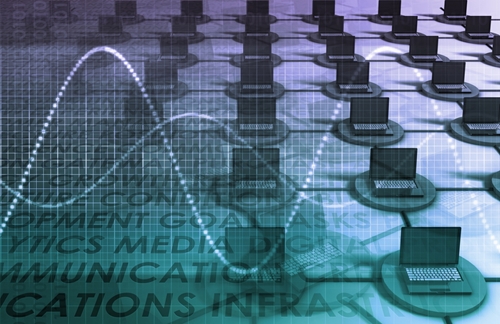Why are EHR systems and big data not working together?
Electronic health record systems seem like the perfect foundation for big data analytical strategies. EHR systems contain thousands if not millions of data points that manual observation could never make sense of. Instead, statistical analyses through big data processes may uncover hidden trends in diseases, as well as the most effective ways to treat those conditions.
While EHR systems still hold the potential for this functionality and many healthcare professionals are voicing their support for the implementation of big data strategies, the industry has not yet made progress in this respect. Rather, a recent article by researchers at Harvard Medical School, Beth Israel Deaconess Medical Center and Boston's Children Hospital and published in the Journal of the American Medical Association explained that significant gaps in interoperability persist across the healthcare industry that isolate potentially useful data sets from each other.
Minding the gaps
The Boston-based researchers sought an explanation for why big data strategies have not yet been applied to data-rich EHR systems, and the answer may be related to initiatives that the Centers for Medicare and Medicaid Systems has been promoting for years.
In a review of literature and current uses of EHR systems, the study authors claimed that big data becomes a truly actionable strategy when systems of data are interconnected from high-level abstractions to low-level consumer-facing applications. In retail industries, these data points can flow as freely as organizations wish them to, but healthcare companies face restrictions and regulations on protecting patient data that prevent the open sharing of sensitive information.
Because patient data is intentionally segmented from other institutions to prevent breaches or theft, big data strategies currently have limited applications in the healthcare industry, the study authors concluded.
Improving connectivity while preserving security
Ten years ago, EHR systems were not on physicians' radars at all, so it may not be too far-fetched to imagine a transformative system of data sharing that enables both big data strategies and adequate security. According to Francis Collins, M.D., of the National Institutes of Health, this reality may not be far off.
In a blog post on the NIH site, Collins explained the process of a study that used big data to catalog genetic variations of the genome – a common structure that poses no threat to identifiable patient information. After identifying some potentially problematic changes to DNA, Collins explained how the researchers cross-referenced their genetic markers with ten years of EHR data from Stanford Hospital and Clinics, Mount Sinai Medical Center and Columbia University Medical Center.
Though Collins touted the research as an innovative use of big data in the medical industry, he admitted that it was only viable due to the backlog of patient data that offers little benefit to current patients. Research goals may still be achieved with old data sets, but the true value of big data in healthcare rests in its ability to analyze and interpret information in real-time.
Otherwise, patient outcomes see no benefit and physicians see no purpose for the analytics big data offers.



